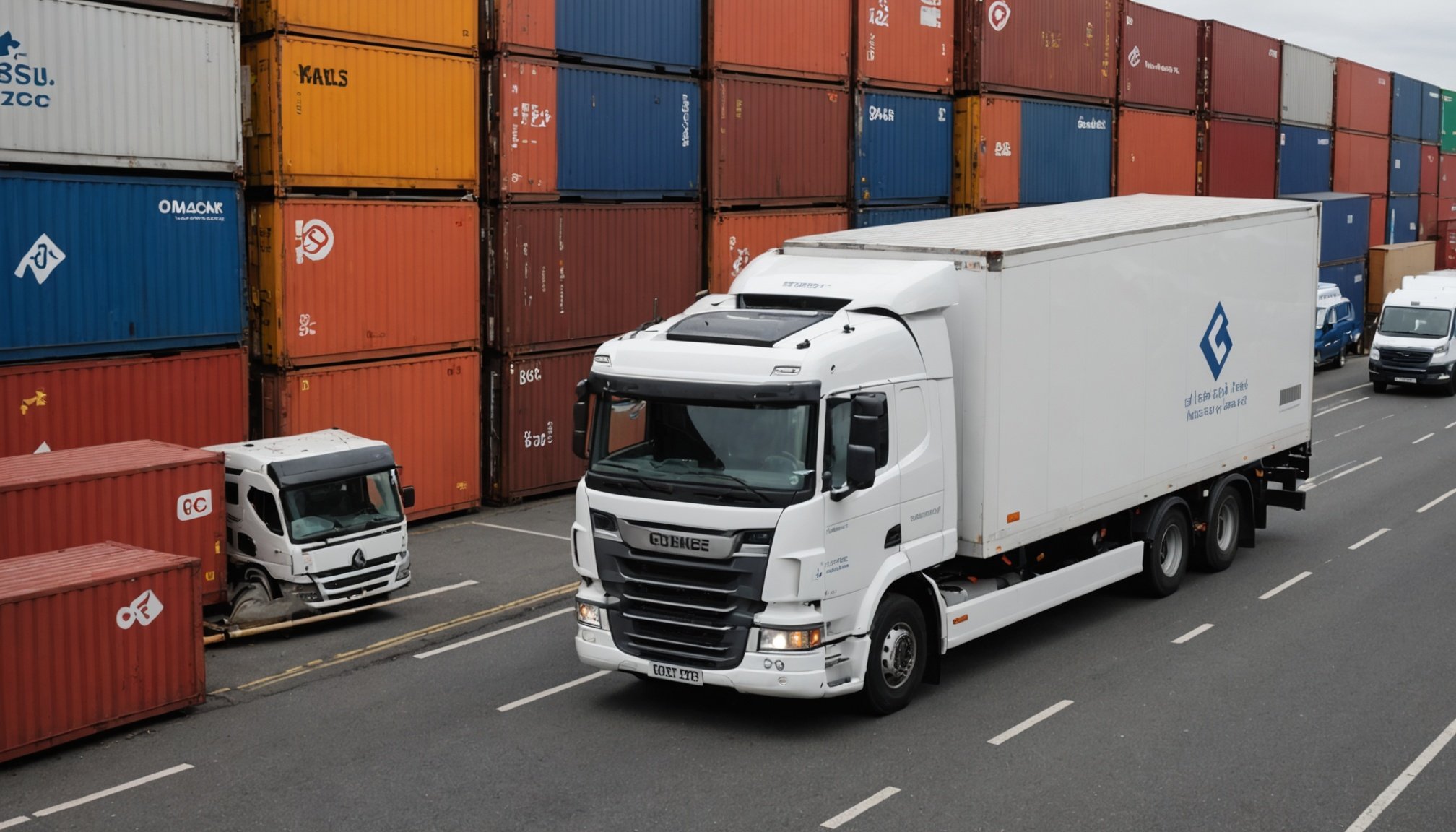Understanding the Legal Requirements for Your Move
Navigating the legal requirements for a UK-Ireland move can be complex, yet understanding these aspects ensures a smoother transition. One crucial element is obtaining the necessary documentation for relocation. Typically, residents need valid passports, employment contracts, and proof of residence to prove their right to live and work in Ireland. Without these, you may face legal complications.
Equally important are the import/export regulations between the UK and Ireland. Due to Brexit changes, moving goods requires a detailed awareness of customs procedures. Items like vehicles, household goods, or personal items must comply with specific regulatory standards. For instance, cars require VRT (Vehicle Registration Tax) clearance and proof of previous ownership documentation.
Cela peut vous intéresser : Essential Tips for Confirming the Legitimacy of a UK Moving Company
Customs declarations and duty payment are central when moving possessions. Items valued over a certain limit necessitate customs duty payments, calculated based on item type and value. Completing accurate customs declarations prevents unnecessary delays and complies with the destination’s legal standards. It’s worth exploring specific travel exemptions or allowances to optimise your move while adhering to regulations.
Completing these processes meticulously supports a hassle-free move. Knowledge of the necessary documentation, import/export regulations, and customs declaration requirements equips you with confidence in managing a UK-Ireland transition efficiently.
Dans le meme genre : Essential Tips for Maintaining Seamless Home Care for Your Elderly Loved One During a Relocation in the UK
Customs Regulations and Responsibilities
Understanding the customs regulations between UK-Ireland is crucial when crossing borders, particularly regarding duties and taxes on personal goods. Typically, customs duties apply to items exceeding personal allowances. For instance, if you bring electronics from the UK to Ireland, these may incur additional charges. Always check both countries’ limits to avoid unexpected costs.
Prohibited and Restricted Items
When travelling, some items are strictly prohibited or restricted. Prohibited items often include illegal substances and products made from endangered species. On the other hand, restricted items require special permits. Firearms and certain medications usually fall into this category. Familiarise yourself with these lists to ensure compliance and smooth passage through customs.
Navigating Customs Inspections and Paperwork
Customs inspections are routine, yet many find them daunting due to paperwork. Simplify the process by preparing all necessary documents beforehand, such as receipts and identification. Declaring all goods accurately can save time and prevent penalties. If faced with an inspection, remain calm and cooperate with customs officers. They ensure the safety and legality of goods entering each country.
By thoroughly understanding and adhering to the customs regulations between UK-Ireland, you can enjoy seamless travel while respecting international laws. Remember, informed travellers experience fewer obstacles, transforming your journey into a pleasant one.
Transportation Options and Planning
When considering transportation for a cross-border move, understanding your options is crucial. The most common methods include road, ferry, and air, each offering distinct benefits and drawbacks.
Shipping Methods
-
Road transportation is often the most economical, particularly for regional moves. It provides flexibility in scheduling and direct delivery to your new residence. However, road conditions and customs processes may cause delays.
-
Ferry transport serves as a practical choice for moving to locations across water bodies. While slightly slower, it allows more robust goods transport options, such as larger vehicles and containers. It’s essential to factor in seasonal weather, which could affect schedules.
-
Air freight is the fastest but also the most expensive option. Ideal for urgent moves or shipping smaller, high-value items, air transport is less affected by terrain challenges but demands precise planning due to limited space and weight constraints.
Factors Affecting Costs and Timing
Understanding costs involves considering fuel prices, distance, and any required customs fees. It’s also wise to plan according to seasonal demand spikes that could increase prices or limit availability.
Selecting a Moving Service
Choosing a reliable moving service involves researching their reputation, assessing their insurance coverage, and confirming their experience with international regulations. Comparing several services will ensure you find the best fit for your needs and budget.
Packing Advice for International Moves
When packing for an international move, it’s crucial to pay careful attention to details. Packing tips for an international move require a thorough understanding of the journey your belongings will undertake and the potential risks involved. Starting with fragile items, ensure they are wrapped individually using quality packing materials such as bubble wrap or packing paper. Place them in sturdy boxes and fill any gaps with cushioning materials to prevent movement during transit.
Labelling and inventory management is another cornerstone of a successful international move. Clearly label each box with its contents and the room it belongs to, which aids in organisation both during the move and when unpacking at your destination. An inventory list is indispensable; not only does it help in keeping track of your belongings, it also assists in filing any claims in case of loss or damage.
Using the right materials for protection cannot be overstated. Double-walled boxes provide extra strength and are less likely to collapse under weight. For added protection, especially for valuables or electronics, consider specialty packing solutions like custom-fit foam inserts. This attention to detail ensures that your belongings arrive safely and that the stress of relocating is minimised, allowing for a smoother transition to your new home.
Cost Considerations and Budgeting
When moving from the UK to Ireland, understanding the breakdown of potential expenses is critical. Costs can quickly escalate if not carefully managed. The primary expenses typically include moving services, which vary depending on the size and distance of the move. These services might involve packing, transporting, and unpacking your belongings. It’s essential to compare providers for competitive rates.
Customs duties can also add significantly to your moving costs. Although the UK and Ireland belong to the Common Travel Area, certain goods may still incur duties. Consulting with customs officials or a relocation advisor can help anticipate and minimise these expenses.
Hidden costs are another important consideration. You might encounter additional charges for storage, should your new home not be ready at the time of your move. Insurance is also crucial, providing coverage for your possessions during transit. Estimating these costs ensures you are not caught off guard financially.
Effective budgeting and financial planning are crucial. Begin by listing all anticipated expenses and setting aside a contingency fund for unexpected costs. Seeking quotes and asking about the potential for additional charges can help in creating a realistic moving budget. Adequate preparation will make the relocation smoother and less stressful.
Timing Your Move for Maximum Efficiency
Planning your move timing is crucial for a successful and stress-free relocation. The optimal times of year for cross-border moves vary, but generally, spring and early autumn offer a balance of mild weather and less crowded schedules. Avoiding peak moving season, typically in the summer when demand is high, can result in lower costs and more flexible options.
Scheduling transportation and delivery requires careful planning. Begin by researching and booking a reliable moving company well in advance. This is especially important for international moves, where availability of services can be limited. Be clear about your specific pick-up and delivery dates to ensure that your belongings arrive when needed. Communicate with your movers about customs clearance processes, which can impact delivery timelines.
Managing timelines for packing and logistics demands attention to detail. Create a detailed timeline that outlines each critical task, from decluttering to securing insurance for your items. Set specific deadlines for packing to avoid last-minute stress. Consider a phased approach, tackling one room at a time. Utilise labels and lists to keep track of inventory, ensuring nothing is overlooked. Advanced planning not only streamlines the process but also offers peace of mind, fostering an organised and efficient relocation experience.
Navigating Cultural Adjustments
When moving from the UK to Ireland, understanding cultural adjustments is crucial. While both countries share historical ties and language, the nuances of daily life and cultural practices can vary significantly.
One noticeable difference may be in social interactions. The Irish are renowned for their warmth and hospitality. A simple chat in a café can quickly turn into a friendly conversation, and getting to know people in your local community is both welcomed and encouraged. Conversely, urban UK interactions might be more reserved, especially in bustling cities like London.
Integrating into your new community in Ireland can be made easier by engaging in local events. GAA matches, traditional music sessions, and community fairs are fantastic opportunities to meet people and integrate into the vibrant local culture.
To help with these cultural adjustments, various resources are available. Local community centres and expatriate groups often provide support and guidance. Websites and online forums can also be excellent places to learn about the intricacies of Irish life and customs.
Understanding these elements and utilising community resources can ease the transition, ensuring you feel at home in your new environment quickly. Engaging openly with locals and embracing these cultural adjustments will make your experience richer and more rewarding.











